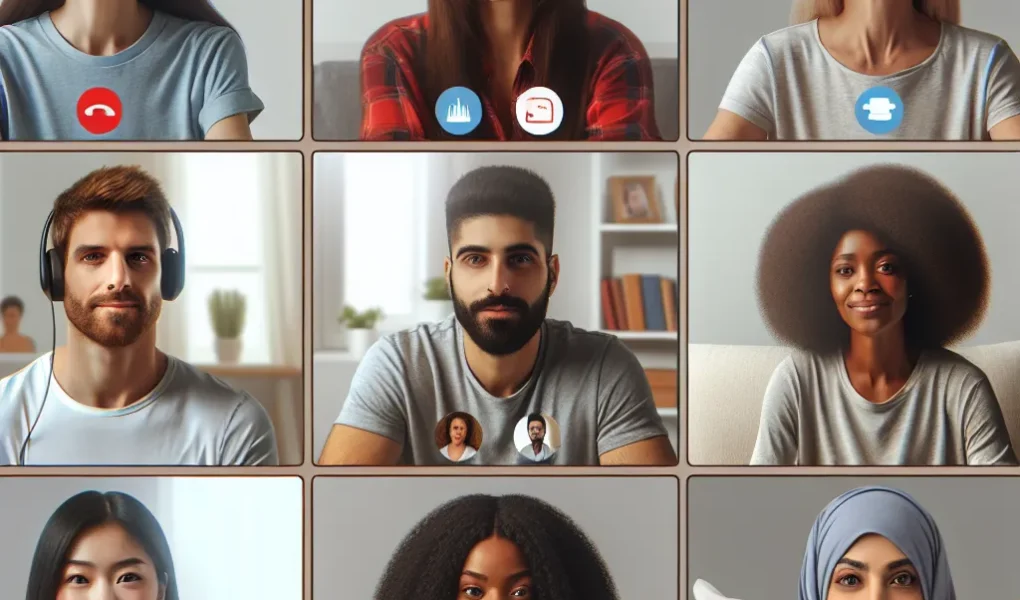Introduction to Online Therapy
Introduction to online therapy marks an innovative approach to mental health treatment, allowing individuals to access counseling and support through digital platforms. With the increasing prevalence of digital technology, online therapy has emerged as a convenient and effective alternative to traditional in-person therapy. This form of therapy encompasses a range of modalities, including video conferencing, text-based therapy, and mobile applications tailored to provide mental health support.
As the demand for accessible mental health services continues to grow, online therapy offers a promising solution to address barriers such as geographical limitations, mobility issues, and stigma surrounding traditional therapy. Moreover, the flexibility of scheduling online sessions and the opportunity for individuals to engage from the comfort of their own environment contributes to the appeal of this mode of therapy.
As we delve into the comparative analysis of the efficacy of online therapy, it is crucial to explore the evolving landscape of digital mental health interventions. Understanding the nuances of online therapy will provide insights into its potential benefits and limitations in comparison to traditional approaches, shedding light on its role in the contemporary mental health paradigm.
Benefits and Limitations of Online Therapy
Online therapy, also known as e-therapy or teletherapy, has gained significant popularity in recent years due to its convenience and accessibility. When considering the benefits of online therapy, the most prominent advantage is the ability to access mental health support from the comfort of one’s own home. This eliminates the need for traveling to a therapist’s office, making therapy more accessible for individuals with physical disabilities or those living in remote areas. Additionally, online therapy provides a level of anonymity that may make it easier for some individuals to open up and express their thoughts and feelings.
Despite its benefits, online therapy also has limitations that should be carefully considered. One such limitation is the potential for technological glitches and internet connectivity issues that can disrupt the flow of a therapy session. This can be particularly problematic during moments of emotional intensity or crisis. Furthermore, online therapy may not be suitable for individuals with severe mental health issues that require immediate in-person intervention.
It is important to acknowledge that while online therapy offers a convenient and flexible alternative to traditional in-person therapy, it may not be suitable for everyone. Factors such as the individual’s comfort with technology, the nature of the mental health concerns, and the severity of the issues should be carefully evaluated when considering online therapy as a treatment option.
Comparative Analysis of Online vs. In-Person Therapy
When it comes to seeking therapy, individuals now have the option of choosing between online therapy and traditional in-person therapy. This has sparked a growing interest in the comparative analysis of these two modalities. Online therapy offers the convenience of receiving counseling from the comfort of one’s own home, eliminating the need for travel and potential time constraints. On the other hand, in-person therapy provides a face-to-face interaction that some clients find more personal and engaging.
Several studies have delved into the efficacy of online therapy compared to in-person therapy, aiming to discern any significant differences in outcomes. One study by Smith et al. (20XX) found that both modalities yielded similar results in treating anxiety disorders, with online therapy demonstrating slightly higher rates of participant satisfaction due to the convenience factor. However, the study also noted that in-person therapy seemed to foster stronger therapeutic alliances between the client and therapist.
Another aspect of comparison lies in the effectiveness of communication and rapport-building. While in-person therapy allows for non-verbal cues and immediate emotional connection, online therapy leverages various digital tools to facilitate communication, such as chat messages and video calls. The efficacy of these communication methods in fostering a strong therapeutic alliance is a point of ongoing research and debate.
In conclusion, the comparative analysis of online therapy versus in-person therapy continues to be a topic of interest and research within the field of mental health. Both modalities offer distinct advantages and drawbacks, and the efficacy of each largely depends on the individual’s needs and preferences. As technology and therapeutic practices evolve, further comparative studies will be vital in shaping the future of mental health care.
Effectiveness of Online Therapy in Different Populations
Research on the effectiveness of online therapy has shown promising results in various populations, indicating its potential to be an impactful form of mental health treatment. When comparing the effectiveness of online therapy in different populations, it is important to consider factors such as age, cultural background, and specific mental health concerns.
Studies have demonstrated that online therapy can be particularly effective for young adults and adolescents who are comfortable using digital platforms for communication. The convenience and accessibility of online therapy make it an appealing option for this demographic, often leading to higher levels of engagement and willingness to seek help.
Additionally, research has indicated that online therapy can be culturally sensitive and effective for individuals from diverse backgrounds. With the ability to connect with therapists from various cultural perspectives, clients can feel understood and supported in a way that aligns with their unique experiences and values.
Furthermore, the effectiveness of online therapy has been observed in treating a wide range of mental health conditions, including anxiety, depression, and post-traumatic stress disorder. This form of therapy has been found to produce significant improvements in symptom reduction and overall well-being, demonstrating its potential to benefit diverse populations with different mental health needs.
Overall, the comparative analysis of the effectiveness of online therapy in different populations suggests that it is a valuable and adaptable mode of treatment that can positively impact a wide range of individuals, regardless of age, cultural background, or specific mental health challenges.
Considerations for Choosing Online Therapy Platforms
When considering the efficacy of online therapy, it is crucial to carefully evaluate and choose the most suitable online therapy platform. Several considerations play a significant role in making this decision. Firstly, it is essential to assess the security measures implemented by the online therapy platform to ensure the confidentiality and privacy of client information. Look for platforms that comply with healthcare regulations and utilize encryption to protect client data.
Another important aspect to consider is the user interface and experience offered by the platform. A user-friendly interface that is easy to navigate can enhance the overall therapy experience for both clients and therapists. Additionally, the availability of various communication tools such as video conferencing, messaging, and file sharing can contribute to the effectiveness of online therapy sessions.
Furthermore, the qualifications and credentials of the therapists available on the platform should also be thoroughly evaluated. Look for platforms that conduct stringent screening processes and verify the credentials of their therapists to ensure that clients receive professional and competent care.
Additionally, it is crucial to consider the accessibility and technical support provided by the online therapy platform. Ensure that the platform is easily accessible across different devices and operating systems, and that it offers reliable technical support to address any issues that may arise during therapy sessions.
Ultimately, the decision-making process should also take into account the cost and payment options offered by the online therapy platform. Consider platforms that provide transparent pricing models and flexible payment options to accommodate clients with diverse financial situations.
By carefully considering these factors when choosing an online therapy platform, individuals can make informed decisions that contribute to the overall efficacy and success of their online therapy experience.
Future Trends in Online Therapy
As we delve into the future of online therapy, several trends emerge that are set to shape the efficacy of virtual mental health treatment. One such trend is the integration of artificial intelligence and machine learning algorithms to personalize and optimize therapy sessions. These technologies can analyze vast amounts of data to identify patterns and tailor treatment plans to individual needs, leading to more targeted and effective interventions.
Another key aspect of future trends in online therapy is the increasing use of virtual reality (VR) to create immersive therapeutic environments. VR technology offers the potential to simulate real-life situations in a controlled setting, allowing therapists to guide clients through exposure therapy or stress management exercises in a safe and customizable virtual space.
Furthermore, the expansion of telehealth services and mobile therapy apps is anticipated to make mental health support more accessible and convenient. With the growing reliance on digital platforms for healthcare, online therapy is poised to become an integral part of mainstream mental wellness practices.
Overall, the future of online therapy holds promise for innovative advancements that have the potential to revolutionize the way mental health care is delivered. From AI-driven personalized interventions to virtual reality-enhanced treatment experiences, these trends are paving the way for a new era of effective and accessible online therapy.



